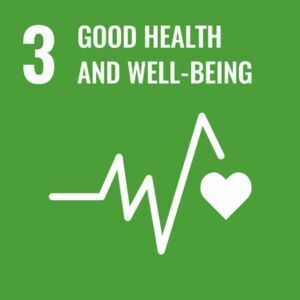Photo by Marcelo Leal on Unsplash
Featured Book
Living Well with a Serious Illness: A Guide to Palliative Care for Mind, Body and Spirit
by Robin Bennett Kanarek

A practical guide for understanding how palliative care can improve quality of life for patients and their caregivers.
Robin Bennett Kanarek was a registered nurse working with patients suffering from chronic medical conditions when her ten-year-old son was diagnosed with leukemia. As her son endured grueling treatments, Robin realized how often medical professionals overlook critical psychological, emotional, and spiritual support for people with life-threatening illnesses. Living Well with a Serious Illness is the culmination of decades of Robin's work to advance the field of palliative care.
Although palliative care is often associated with hospice and end-of-life planning, Kanarek argues for a more expanded definition that incorporates palliative care earlier in patients' journeys. Living Well with a Serious Illness helps patients and their caregivers understand
- what palliative care entails
- how to access the support they need when going through a serious illness
- what questions to ask medical professionals
- how to navigate advanced care planning
- definitions of common terminology used with end-of-life planning
- the importance of spiritual care, coping strategies, and emotional support
- how to become an advocate for palliative care
This book illuminates the importance of seeing patients as individuals who can benefit from care for their body, mind, and spirit—the core tenet of palliative care.
Robin was part of our Global Read program discussion her book along with Dr. Christina Puchalski, pioneer and international leader in the movement to integrate spiritual health into clinical settings, education, and policy.
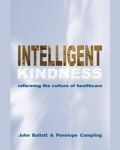
Ballatt, Leicester John. Intelligent Kindness: Reforming the Culture of Healthcare (RCPsych Publications, 2011).
The NHS represents the last vestige of social inclusiveness and solidarity for frail, elderly people; for traumatised children; for people with intellectual disability, dementia, or severe mental health problems; and for people who repeatedly harm themselves, either directly, or persistently through the misuse of drugs and alcohol. And yet the staff who do the hard work of maintaining that solidarity are subject to a constant stream of criticism, efficiency savings, and instructions to do better. Exposed to precious little kindness themselves, they are nonetheless expected to provide it unstintingly. ''There is a lack of understanding, a lack of thoughtful connection-a lack of kindness in the way the organisation as a whole is treated''...The priority of everyone involved would be to ''help front line staff to help patients.'' Such a culture of kindness would play out in encouragement, support, and the celebration of achievements rather than the current obsession with condemnation and rooting out poor practice. Staff should be given the space and stature to take pride in their work, not forever feeling the dead hand of inspection and regulation.
This book is more than recommended reading. If I ruled the world, I would arrange for everyone who wields any power in the NHS to be locked in a room until they had read it. But then, of course, that is precisely the sort of dictatorial behaviour that the authors see as the antithesis of intelligent kindness, and so I am obliged to fall back on an unrestrained enthusiasm that I hope will prove infectious.
~ Iona Heath president, Royal College of General Practitioners
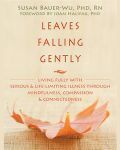
Bauer-Wu. Leaves Falling Gently: Living Fully with Serious and Life-Limiting Illness through Mindfulness, Compassion, and Connectedness (New Harbinger Publications, 2011).
A life-limiting illness may have taken hold of your body, but you can still live more fully and openly than ever before. You can enrich your life by exploring ways to make peace with yourself and deepen connections with friends and family. This book will help you reap the benefits of mindfulness and acceptance, one day at a time.
Leaves Falling Gently is a comforting guide to the mindfulness and compassion practices that will help you embrace the present moment, despite your illness. With each simple practice, you’ll deepen your appreciation for the experiences that bring you joy and enhance your capacity for gratitude, generosity, and love. As you work through each personal reflection and guided meditation, you’ll regain the strength to live fully, regardless of the changes and challenges that come.
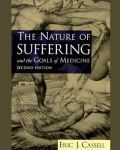
Cassel, Eric. The Nature of Suffering and the Goals of Medicine (Oxford University Press; 2nd edition, 2004).
This is a revised and expanded edtion of a classic in palliative medicine, originally published in 1991. With three added chapters and a new preface summarizing our progress in the area of pain management, this is a must-hve for those in palliative medicine and hospice care.
The obligation of physicians to relieve human suffering stretches back into antiquity. But what exactly, is suffering? One patient with metastic cancer of the stomach, from which he knew he would shortly die, said he was not suffering. Another, someone who had been operated on for a mior problem--in little pain and not seemingly distressed--said that even coming into the hospital had been a source of pain and not suffering. With such varied responses to the problem of suffering, inevitable questions arise. Is it the doctor's responsibility to treat the disease or the patient? And what is the relationship between suffering and the goals of medicine?
According to Dr. Eric Cassell, these are crucial questions, but unfortunately, have remained only queries void of adequate solutions. It is time for the sick person, Cassell believes, to be not merely an important concern for physicians but the central focus of medicine. With this in mind, Cassell argues for an understanding of what changes should be made in order to successfully treat the sick while alleviating suffering, and how to actually go about making these changes with the methods and training techniques firmly rooted in the doctor's relationship with the patient.
Dr. Cassell offers an incisive critique of the approach of modern medicine. Drawing on a number of evocative patient narratives, he writes that the goal of medicine must be to treat an individual's suffering, and not just the disease. In addition, Cassell's thoughtful and incisive argument will appeal to psychologists and psychiatrists interested in the nature of pain and suffering.
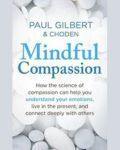
Gilbert, Paul. Mindful Compassion (Robinson Publishing, 2013).
This title is based on the latest work from Professor Paul Gilbert OBE, bestselling author of "The Compassionate Mind", and "Buddhist expert Choden." Professor Gilbert has spent the past twenty years developing a new therapy called Compassion-Focused Therapy (CFT) which has an gained international following. In recent years, mindfulness is being used increasingly to treat common mental health problems such as depression, stress and stress-related insomnia. In this ground-breaking new book, Professor Gilbert, along with his co-author Choden, combines the best of Compassion-Focused Therapy with the most effective mindfulness techniques. The result is an extremely effective approach to overcoming everyday emotional and psychological problems and improving one's sense of wellbeing.
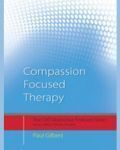
Gilbert, Paul. Compassion Focused Therapy: Distinctive Features (CBT Distinctive Features) (Routledge, 2010).
Research into the beneficial effect of developing compassion has advanced enormously in the last ten years, with the development of inner compassion being an important therapeutic focus and goal. This book explains how Compassion Focused Therapy (CFT) – a process of developing compassion for the self and others to increase well-being and aid recovery – varies from other forms of Cognitive Behaviour Therapy.
Comprising 30 key points this book explores the founding principles of CFT and outlines the detailed aspects of compassion in the CFT approach. Divided into two parts – Theory and Compassion Practice – this concise book provides a clear guide to the distinctive characteristics of CFT.
Compassion Focused Therapy will be a valuable source for students and professionals in training as well as practising therapists who want to learn more about the distinctive features of CFT.
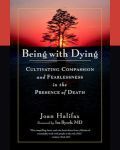
Halifax, Roshi Joan. Being with Dying: Cultivating Compassion and Fearlessness in the Presence of Death (Shambhala Publications, 2011).
The Buddhist approach to death can be of great benefit to people of all backgrounds—as has been demonstrated time and again in Joan Halifax’s decades of work with the dying and their caregivers. Inspired by traditional Buddhist teachings, her work is a source of wisdom for all those who are charged with a dying person’s care, facing their own death, or wishing to explore and contemplate the transformative power of the dying process. Her teachings affirm that we can open and contact our inner strength, and that we can help others who are suffering to do the same.
Joan Halifax has a knack for straight talk and sublime insight—a no-holds-barred approach to life’s greatest challenge, dying well. This book beckons to those who dare, and those who care; it’s a profound and practical guidebook to the inevitable final dance.
~ Daniel Goleman, author of Emotional Intelligence
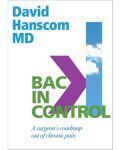
Hanscom, David, MD. Back in Control (Veitus Press, 2013).
In Back in Control, Dr. Hanscom focuses on an aspect of chronic pain that the medical world has largely overlooked: you must calm your nervous system in order to get better. Beyond any other book about back pain, Back in Control reveals how to quiet a turbocharged central nervous system and make a full recovery. His life-changing sstem has helped hundreds of patients heal their pain. These patients’ stories, as well as his own, show that you can take charge of your care and set yourself on the road to a healthy, rich and full life.
Dr. Hanscom is an orthopedic spine surgeon currently practicing at Swedish Hospital’s Neuroscience Specialists, Seattle, Washington.
This book is a gem. Having worked with 100's of pain patient's, having attempted to impart nuggets of new scientific understandings to them about how chronic pain represents alterations in the brain, not tissue damage, I now point them to this book for the same information. It' written by spinal surgeon, himself a chronic pain sufferer who convincingly shows fellow chronic pain sufferers how to overcome the disease of chronic pain. The path he unfurls, he's traveled, While he points out that sometimes the path out of pain requires surgery, most of the time, the path requires self awareness, the learning of new skills, and the implementation of highly accessible psychological lessons.
~ David Green PhD. Pain Psychologist
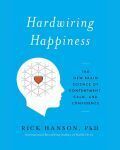
Hanson, Rick. Hardwiring Happiness (Harmony, 2013).
Why is it easier to ruminate over hurt feelings than it is to bask in the warmth of being appreciated? Because your brain evolved to learn quickly from bad experiences but slowly from the good ones. You can change this. Hardwiring Happiness lays out a simple method that uses the hidden power of everyday experiences to build new neural structures full of happiness, love, confidence, and peace. Dr. Hanson’s four steps build strengths into your brain— balancing its ancient negativity bias—making contentment and a powerful sense of resilience the new normal. In mere minutes each day, we can transform our brains into refuges and power centers of calm and happiness.
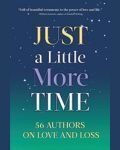
Lewars, Corbin; Khamisa, Azim; Raab, Diana. Just a Little More Time: 56 Authors on Love and Loss (Dane Chapin Ventures, 2017).
Story is a crucial component of navigating the roller coaster that is grief. The beautifully written stories and poems in the Just a Little More Time anthology share tender last moments with loved ones, muse about what happens once we die, and most of all celebrate and delight with tales of love. The book's magic is hidden in the smallest details that underlie the universal message: that you can find hope after significant loss. Whether exploring the loss of a cherished forest or beloved wife, the love the authors capture is both fierce and tender. Their stories uplift and inspire the reader to think of loss in a new way--a blessing to have cared so much.
Over fifty authors write about their experience of losing a sense of place, innocence, marriage, health, child, parent, or nature. The poems and essays are woven together to form an inspiring testament to the importance of being brave in love. Contributions vary from the humorous, to provocative, to poignant. Contributors include Azim Khamisa, author and founder of TKF, Nyaniso Tutu-Burris activist and granddaughter to Desmond Tutu, and poet Donna Hilbert. Sections include: Lost and Found, Gifts of Love, Nature, I Would Like to Say, Discoverable Truths, Always With Me, Last Moments, and Life After Life.
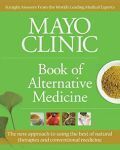
Mayo Clinic. Mayo Clinic Book of Alternative Medicine (Oxmoor House, 2010).
This revised edition is fully illustrated and still offers the same practical advice by using the red light/green light rating system to evaluate treatments. From acupuncture to yoga, echinacea to St. John's wort, and meditation to healing touch, Mayo Clinic provides answers to the most pressing questions people have about the effectiveness of complementary and alternative medicine and when it's appropriate to use natural remedies in place of or in conjunction with traditional medicine. The book also provides helpful tips on how to treat common ailments and incorporate alternative treatments into the readers' and their families lives.
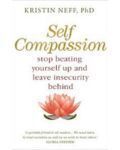
Neff, Kristin. Self-Compassion:Stop Beating Yourself Up and Leave Insecurity Behind (HarperCollins, 2011).
The relentless pursuit of high self-esteem has become a virtual religion—and a tyrannical one at that. Our ultracompetitive culture tells us we need to be constantly above average to feel good about ourselves, but there is always someone more attractive, successful, or intelligent than we are. And even when we do manage to grab hold of high self-esteem for a brief moment, we can't seem to keep it. Our sense of self-worth goes up and down like a Ping-Pong ball, rising and falling in lockstep with our latest success or failure.
Fortunately, there is an alternative to self-esteem that many experts believe is a better and more effective path to happiness: self-compassion. The research of Dr. Kristin Neff and other leading psychologists indicates that people who are compassionate toward their failings and imperfections experience greater well-being than those who repeatedly judge themselves. The feelings of security and self-worth provided by self-compassion are also highly stable, kicking in precisely when self-esteem falls down. This book powerfully demonstrates why it's so important to be self-compassionate and give yourself the same caring support you'd give to a good friend.
This groundbreaking work will show you how to let go of debilitating self-criticism and finally learn to be kind to yourself. Using solid empirical research, personal stories, practical exercises, and humor, Dr. Neff—the world's foremost expert on self-compassion—explains how to heal destructive emotional patterns so that you can be healthier, happier, and more effective. Engaging, highly readable, and eminently accessible, this book has the power to change your life
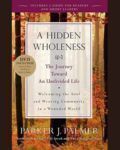
Palmer, Parker. A Hidden Wholeness: The Journey Toward an Undivided Life (Jossey-Bass, 2009).
In A Hidden Wholeness, Parker Palmer reveals the same compassionate intelligence and informed heart that shaped his best-selling books Let Your Life Speak and The Courage to Teach. Here he speaks to our yearning to live undivided lives—lives that are congruent with our inner truth—in a world filled with the forces of fragmentation.
Mapping an inner journey that we take in solitude and in the company of others, Palmer describes a form of community that fits the limits of our active lives. Defining a “circle of trust” as “a space between us that honors the soul,” he shows how people in settings ranging from friendship to organizational life can support each other on the journey toward living “divided no more.”
This paperback edition includes two new and useful features. Circles of Trust is a DVD containing interviews with Parker J. Palmer and footage from retreats he facilitated for the Center for Courage & Renewal (www.CourageRenewal.org). Bringing the Book to Life, by Caryl Hurtig Casbon and Sally Z. Hare, is a reader's and leader's guide to exploring the themes in A Hidden Wholeness. The DVD illuminates and illustrates the principles and practices behind circles of trust. The guide includes questions that connect the DVD to the book, offering "a conversation with the author" as well as an engagement with the text. Together, these features give readers new ways to internalize the themes of A Hidden Wholeness and share with others this approach to sustaining identity and integrity in all the venues of our lives.
Inspired by Palmer’s writing and speaking—and challenged by the conditions of twenty-first century life—people across the country, from many walks of life, have been coming together in circles of trust to reclaim their integrity and help foster wholeness in their workplaces and their world.
For over a decade, the principles and practices in this book have been proven on the ground—by parents and educators, clergy and politicians, community organizers and corporate executives, physicians and attorneys, and many others who seek to rejoin soul and role in their private and public lives.
A Hidden Wholeness weaves together four themes that its author has pursued for forty years: the shape of an integral life, the meaning of community, teaching and learning for transformation, and nonviolent social change. The hundreds of thousands of people who know Parker Palmer’s books will be glad to find the journey continued.
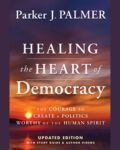
Palmer, Parker. Healing the Heart of Democracy: The Courage to Create a Politics Worthy of the Human Spirit (Jossey-Bass, 2011).
*A Starred Review from Publishers Weekly* Palmer's...newest was six years in the making. He bravely takes on the current political climate, with its atrophy of citizen participation, the ascendance of an oligarchy that shapes politics, and the substitution of vituperation for thoughtful public discussion. It's a tall order that became even taller because Palmer had to climb out of a pit of depression -- his constitutional proclivity -- to do so. But wrestling with essential questions of public life became therapeutic, and this book provides therapy for the American body politic. Palmer's use of acute 19th-century observers of American life and character -- Tocqueville, Lincoln -- as well as his use of anecdotes and lessons from his own long career provide context and tonic. His insights are heart-deep: America gains by living with tension and differences; we can help reclaim public life by actions as simple as walking down the street instead of driving. Hope's hardly cheap, but history is made up of what Palmer calls "a million invisible acts of courage and the incremental gains that came with them." This beautifully written book deserves a wide audience that will benefit from discussing it. -- August 8, 2011
There is a deep and disturbing cloud hanging over the United States. It is a malaise that is leading to cynicism and self-centeredness. ... I know of no better guide to discerning the problem and the solutions than this book by Parker Palmer. It is a prophetic book, one that needs to be taken with all due seriousness, if we are to emerge from our malaise stronger and healthier than before.
~ Englewood Review of Books
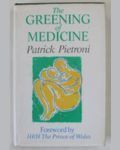
Pietroni, Patrick, MD. Greening of Medicine (Victor Gollancz, 1992).
The 1990s heralded a new age of consciousness, an awareness of the importance of our relationships with the environment, with our fellow human beings and with our inner selves. The role of medicine, however, seemed to be developing in isolation from this mood. Dr. Pietroni cogently reappraises medicine's current thought. His controversial but hopeful message will be welcomed both by patiens and by those within the profession.
Dr Pietroni questions medicine's current position and many of its conventions. He calls for an admission of the value of complementary medicine in the GP's surgery and a more collaborative approach to the doctor/patient relationship.
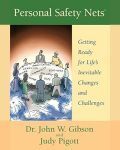
Pigott, Judy and John W. Gibson. Personal Safety Nets: Getting Ready for Life’s Inevitable Changes and Challenges (Safety Nets Unlimited, 2007).
There are times in life when we all need support. When you create your own personal safety net you put together in a useful way all the plans, systems, resources and people who will help. Using real life stories, examples and suggestions, this book will guide you in getting read for the changes and challenges - good and bad - that will inevitably come your way.
Whether you're dealing with a child leaving home, military deployment, operating a family business, child birth, a medical emergency, living in place, elder care, a dysfunctional workplace, or hundreds of other challenges, the end result of having a "personal safety net" in place is a more safe, secure, and satisfying life. With your plans, resources and people identified and informed, your whole life is more secure and connected, replacing fear and isolation with security and community.
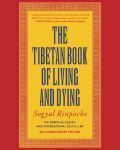
Rinpoche, Sogyal. The Tibetan Book of Living and Dying (HarperCollins, 2009).
A magnificent achievement. In its power to touch the heart, to awaken consciousness, [The Tibetan Book of Living and Dying] is an inestimable gift.
~ San Francisco Chronicle
A newly revised and updated edition of the internationally bestselling spiritual classic, The Tibetan Book of Living and Dying, written by Sogyal Rinpoche, is the ultimate introduction to Tibetan Buddhist wisdom. An enlightening, inspiring, and comforting manual for life and death that the New York Times calls, “The Tibetan equivalent of [Dante’s] The Divine Comedy,” this is the essential work that moved Huston Smith, author of The World’s Religions, to proclaim, “I have encountered no book on the interplay of life and death that is more comprehensive, practical, and wise.”
This acclaimed spiritual masterpiece is widely regarded as one of the most complete and authoritative presentations of the Tibetan Buddhist teachings ever written. A manual for life and death and a magnificent source of sacred inspiration from the heart of the Tibetan tradition, The Tibetan Book of Living and Dying provides a lucid and inspiring introduction to the practice of meditation, to the nature of mind, to karma and rebirth, to compassionate love and care for the dying, and to the trials and rewards of the spiritual path.
Buddhist meditation master and international teacher Sogyal Rinpoche brings together the ancient wisdom of Tibet with modern research on death and dying and the nature of the universe. With unprecedented scope, The Tibetan Book of Living and Dying clarifies the majestic vision of life and death that underlies the classic sacred text The Tibetan Book of the Dead. Sogyal Rinpoche presents simple yet powerful practices from the heart of the Tibetan tradition that anyone, whatever their religion or background, can do to transform their lives, prepare for death, and help the dying.
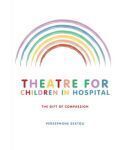
Sextou, Persephone. Theatre for Children in Hospital. The Gift of Compassion (Intellect, December 2016).
Recent decades have seen a new appreciation develop for Applied Theatre and the role of art in arts-based activities in healthcare. This book looks specifically at the place of theatre for children who are hospitalized, showing how powerfully it can enhance their social and mental well-being. Child-led performances, for example, can be used as a technique to distract young patients from hospitalization, prepare them for painful procedures, and teach them calming techniques to control their own pre- or post-operative stress. Persephone Sextou details the key theoretical contexts and practical features of theatre for, children, in the process offering motivation, guidance and inspiration for practitioners who want to incorporate performance into their treatment regimen.
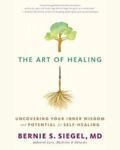
Siegel, Dr. Bernie. The Art of Healing: Uncovering Your Inner Wisdom and Potential for Self-Healing (New World Library, 2013).
In 1979, Dr. Bernie S. Siegel, a successful surgeon, took a class from Elisabeth Kübler-Ross that focused on crayon drawing for healing, especially with patients facing life-threatening disease. Siegel incorporated into his practice these techniques — many of which were laughed at by others in the medical community. But his Exceptional Cancer Patients “carefrontation” protocol facilitated healings, often deemed miraculous, and attracted attention. “Dr. Bernie” discovered and shared the fact that while patients might need antibiotics, surgery, radiation, and chemotherapy, their bodies also want to heal. He found that this innate propensity could be aided by unconventional practices, including drawing. Why? Drawing produces symbols often representing the subconscious. Siegel shows how to interpret drawings to help with everything from understanding why we are sick to making treatment decisions and communicating with loved ones. All those facing ill health, and those caring for them, personally and professionally, will welcome the hands-on, patient-proven practices offered here.
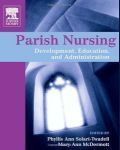
Phyllis Ann Solari-Twadell, PhD, RN, MPA, FAAN and Mary Ann McDermott, EdD, RN, FAAN. Parish Nursing: Development, Education, and Administration (Mosby, 2006).
Written by a multidisciplinary panel of experts, this comprehensive text and reference presents a fundamental understanding of all aspects of parish nursing. Divided into three units - Development, Education, and Administration - it provides in-depth information essential to understanding the ministry of a parish nursing practice, addresses the core interventions used by parish nurses, and applies recent research findings to their roles and functions. The integration of spirituality and health is described and core interventions used by parish nurses are addressed in the context of the standardized languages of NANDA, NIC, and NOC. This is the only text in Parish Nursing that addresses the role of the parish nurse administrator and includes suggested policies and procedures as well as recommendations for competency development for parish nurses
Editors are pioneers and experts in parish nursing, resulting in cutting-edge knowledge balanced with historical perspective.
- Provides information on how to develop and administer a parish nursing program, focusing on the responsibilities of a parish nursing coordinator at the congregational level.
- Discusses the educational preparation necessary for parish nurses.
- Presents the role development and core functions of parish nurses.
- The latest information and research on parish nursing and pastoral care.
- Integration of religion, spirituality, and health that transcends the boundaries of specific denominations.
- Addresses core interventions used by parish nurses in the context of the standardized languages of NANDA, NIC, and NOC.
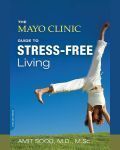
Sood, Amit, MD MSC. The Mayo Clinic Guide to Stress Free Living (Da Capo Lifelong Books, 2013).
Have you ever driven several miles without noticing anything on the road, or read a page in a book without registering any of it? Do the day’s worries and disappointments crowd your mind as you’re trying to fall asleep at night? Do you feel stressed much of the time and aren’t sure how to find peace? In this book, Amit Sood, M.D., M.Sc., a Mayo Clinic specialist in stress and resiliency, reveals how the mind’s instinctive restlessness and shortsightedness generate stress and anxiety and presents strategies for living a more peaceful life. The book is based on the highly popular stress management program offered at Mayo Clinic that Dr. Sood developed after two decades of work with tens of thousands of people. Drawing on groundbreaking brain research, Dr. Sood helps you understand the brain’s two modes and how an imbalance between them produces unwanted stress. From this basis, you learn skills that will help you: Develop deep and sustained attention Practice gratitude, compassion and acceptance Live a meaningful life Cultivate nurturing relationships Achieve your highest potential All of these concepts are weaved into a practical and fun journey that has been tested in numerous scientific studies, with consistently positive results. Take the first step to discover greater peace and joy for you and your loved ones. "Dr. Sood has put together a simple, secular and structured program that is anchored in science, is free of rituals and dogmas, and is accessible to everyone.
This book can change your life.
~ Dr. Andrew Weil
An important innovative approach to well-being, one we all should know about.
~ Dr. Daniel Goleman
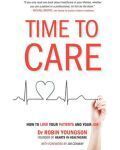
Youngson, Robin. Time to Care: How to Love Your Patients and Your Job (Create Space Independent Publishing Platform, 2012).
In today’s beleaguered healthcare system, burdened with epidemic levels of stress, depression and burnout, TIME to CARE offers health professionals the opportunity of renewal. Here are the secrets to building a happy and fulfilling practice, wellbeing and resilience. Youngson bravely relates his own transition, from a detached clinician to a champion for humane whole-patient care; at times poignant, sometimes funny but always brutally honest. TIME to CARE offers a deeply compassionate and insightful account of a health system that is failing both patients and practitioners all over the world. But there’s more…. Drawing on advances in neuroscience and positive psychology, and tapping the power of appreciative inquiry, Youngson conveys in clear and simple language how health workers can strengthen their hearts, learn the skills of compassionate caring, and rise above institutional limitations to transform patient care…. and rediscover their vocation. Tipped to become an international best-seller, TIME to CARE is recommended reading for today’s health professionals, students, health leaders, patients, and all those passionate about re-humanizing healthcare.


